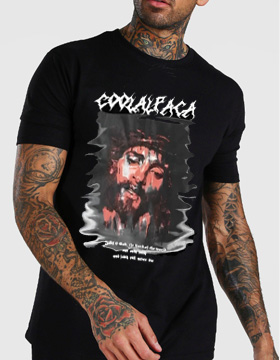Are Luxury or Designer Clothes Worth What They Cost?
Are Luxury or Designer Clothes Worth What They Cost?
Luxury and designer clothes have always held a unique place in the fashion industry, symbolizing sophistication, exclusivity, and unparalleled quality. But for clothing merchants, the question arises: Are these hefty price tags justified, or is the allure of luxury fashion merely a well-crafted illusion? In this article, we’ll break down the true value of luxury clothing and why understanding its cost factors is essential for building a profitable business in the premium fashion market.
Luxury and designer clothes often justify their cost through superior craftsmanship, high-quality materials, and brand exclusivity. These factors enhance durability, elevate style, and appeal to status-conscious buyers, making them a valuable addition for merchants targeting high-end consumers.
Let’s explore the elements that contribute to the price of designer clothing and evaluate whether the investment pays off for both consumers and merchants.
1. Are Expensive Clothes Worth Buying?
When it comes to expensive clothes, the value often lies in the details. From precision tailoring to premium materials like organic cotton, silk, or cashmere, high-end garments are built to last. Their superior construction minimizes fraying, stretching, or fading, ensuring they maintain their look even after multiple uses.
For consumers, this longevity means fewer replacements over time. For merchants, offering such products can position your store as a hub for quality and reliability, fostering customer loyalty. Additionally, luxury clothes often come with enhanced warranties or repair services, further extending their value—a selling point worth emphasizing.
2. Are Designer Clothes a Good Investment?
Designer clothes aren’t just about style; they’re also about status and sometimes even profitability. Rare or vintage pieces by luxury brands like Chanel or Hermès can fetch staggering prices in the resale market. This happens because luxury fashion is driven by scarcity and craftsmanship, which increase demand over time.
As a merchant, including limited-edition collections or iconic designer pieces in your inventory can create buzz and attract customers looking for investment-worthy purchases. Marketing these items with an emphasis on their potential resale value could position your brand as a destination for savvy, high-end buyers.
3. How Much Do Designer Clothes Really Cost?
Designer clothes often come with jaw-dropping price tags. A simple T-shirt from Versace might cost $300, while an intricate Christian Siriano gown could run upwards of $15,000. These prices reflect much more than just the cost of materials and labor; they also cover the brand’s creative vision, exclusivity, and legacy.
For merchants, understanding these pricing dynamics is critical. Educate your customers about what they’re paying for—whether it’s ethically sourced fabrics, innovative designs, or the prestige of owning a piece from a world-renowned brand. This approach not only builds trust but also highlights the value your store offers by curating such exclusive collections.
4. What is the Difference Between Designer and Luxury Brands?
The terms “designer” and “luxury” are often used interchangeably, but they represent different levels of the fashion hierarchy. Designer brands, such as Michael Kors or Ralph Lauren, focus on creativity and trendsetting but might use lower-cost materials or outsource production to meet demand. Luxury brands like Gucci or Louis Vuitton, however, maintain strict quality controls, handcrafting items with precision and sourcing the finest materials.
For merchants, this distinction can guide your marketing strategy. Designer brands might appeal to younger, style-conscious buyers seeking affordability, while luxury brands cater to affluent clients who value exclusivity and craftsmanship. By tailoring your offerings to meet these different expectations, you can diversify your customer base and maximize sales.
5. Why Are Designer Clothes So Expensive?
At their core, designer clothes are expensive because they represent more than just functional garments. The price often includes:
· Premium Materials : Hand-selected fabrics like silk, cashmere, or rare leather.
Example: Loro Piana, a luxury Italian brand, uses baby cashmere harvested from Hircus goats in Mongolia. One sweater can cost $2,000 or more because baby cashmere is incredibly rare and soft.
· Artisan Craftsmanship : Skilled laborers invest hours—or even days—creating intricate details and impeccable finishes.
Example: Christian Louboutin’s iconic red-bottom shoes, priced between $700 and $2,000, are crafted by hand in Italy, ensuring every pair meets rigorous quality standards.
· Ethical Production : Many luxury brands adhere to sustainable and fair trade practices, which increase costs but appeal to eco-conscious consumers.
Example: Stella McCartney focuses on eco-friendly fashion, using sustainable materials like mushroom leather and organic cotton. Her products are pricier, but they appeal to environmentally conscious buyers.
· Exclusivity : Limited production runs ensure rarity, making these items highly sought after.
Example: The Rolex Daytona, retailing at around $14,000, often has years-long waiting lists, making it a status symbol due to its scarcity.
For merchants, this means you’re not just selling clothing—you’re offering your customers access to an elite lifestyle. Highlighting the brand’s commitment to quality, ethics, and innovation in your promotions can help justify higher price points and drive premium sales.
Conclusion
Luxury and designer clothes offer more than just aesthetic appeal—they symbolize quality, status, and individuality. For clothing merchants, understanding these elements is crucial to effectively marketing and selling these items. By curating the right mix of brands, educating your audience about their value, and emphasizing the exclusivity they provide, you can establish your business as a go-to destination for premium fashion.


